Small Actions, Big Impact: My Experience with Community Composting in Singapore
by-Ananya Pratap
As a teenager, I’ve always understood sustainability as a theoretical concept, but never got the opportunity to gain a more practical understanding of it. Sustainability always felt like something that can only be achieved at a larger level, not realising how individual contributions and effort can also make a significant difference. Immediate interests like school, friendships, hobbies, and navigating through growing pains cause us teens to overlook the long-term impact of their immediate actions. Furthermore, there’s often a lack of accessible and quality information about sustainability presented in academic institutions. While the concept is sometimes touched upon in school curriculum, it might not be presented in a way that catches the interest of readers. Without clear, relatable examples of how sustainability can be incorporated in daily life, such as how it can be integrated into fashion choices, social media use, or even school projects, it is challenging for teens to see how they can make a meaningful impact.

I recently visited Singapore and had the opportunity to volunteer with my aunt, Tripti Bhadauriya, the Founder of Rejuvrth. Participating in the Tanjong Rhu Community Composting Project was one of the key highlights of my short getaway. Rejuvrth is an initiative funded by the National Environment Agency (NEA) of Singapore, promoting household food waste recycling through Bokashi composting at the community level. This project is based in the Tanjong Rhu neighborhood of Singapore and is being executed in The Waterside and Costa Rhu condominiums.

To start with, residents receive training sessions on the Bokashi method to ensure effective and smooth participation. Once familiar with the process, participants collect their food waste mixed with Bokashi Bran in the provided Bokashi Buckets. Every Saturday, the residents bring these buckets to be emptied into airtight community bins located in their condominiums. A quality check is conducted on the food waste to remove non-compostable materials like fruit stickers, rubber bands, and plastic bits before adding it to the bin. After two weeks of fermentation in the airtight community bins, the food waste turns into pre-compost, which is then transported to Gardens by the Bay, where it will be processed into compost.
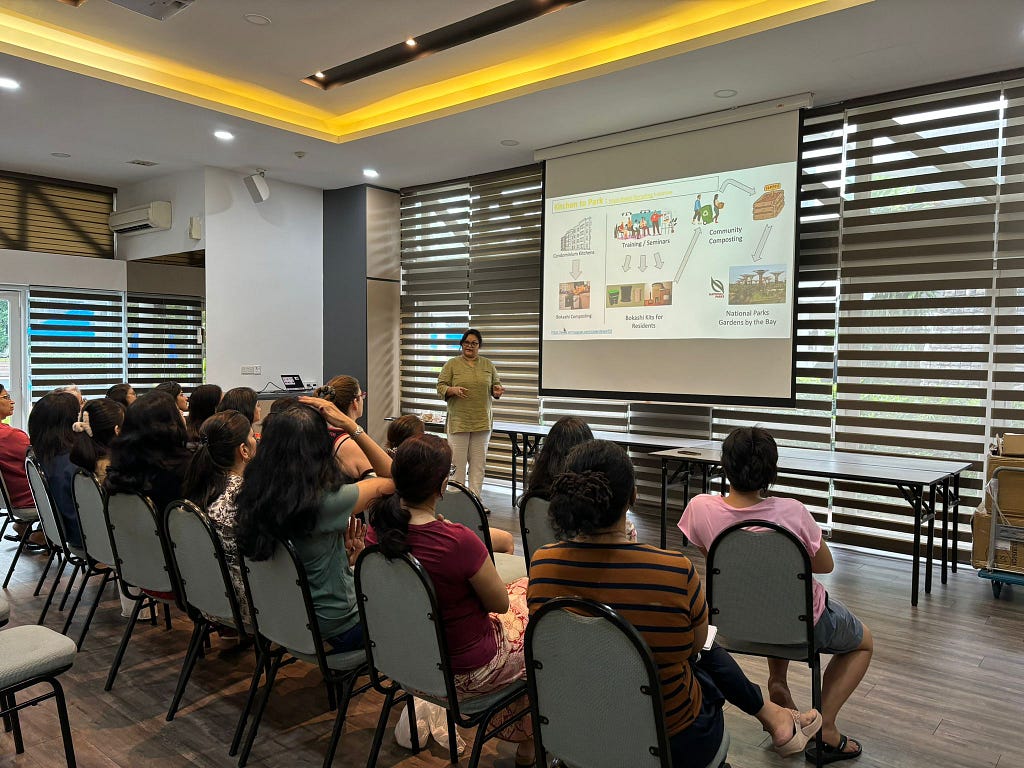
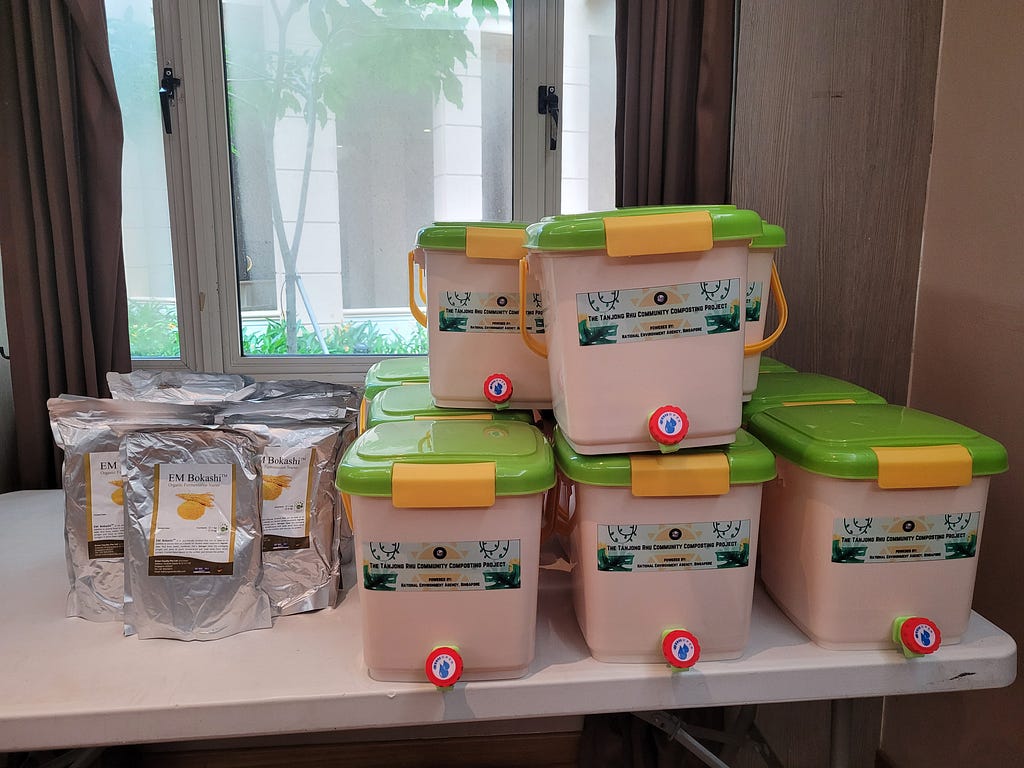
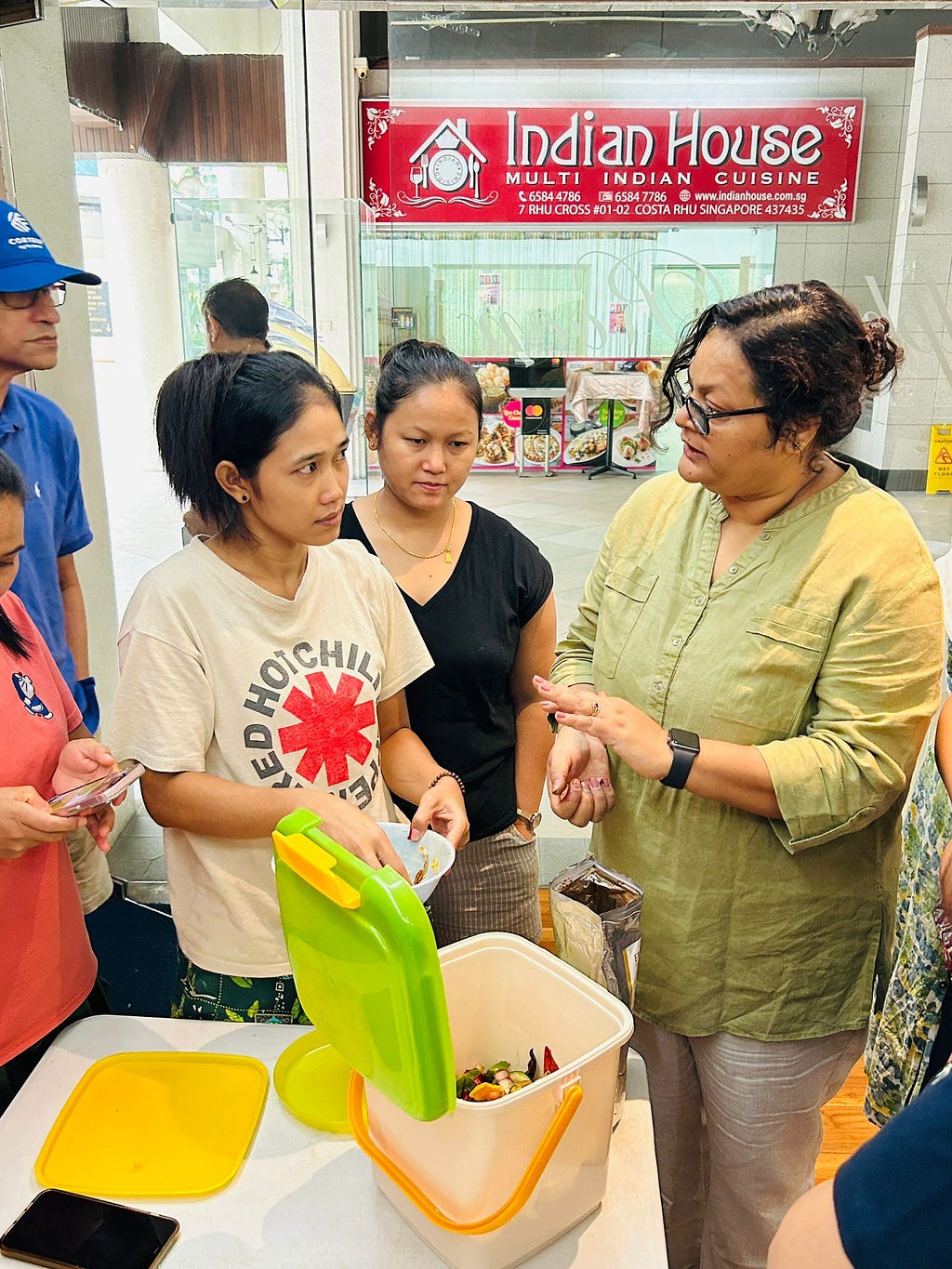
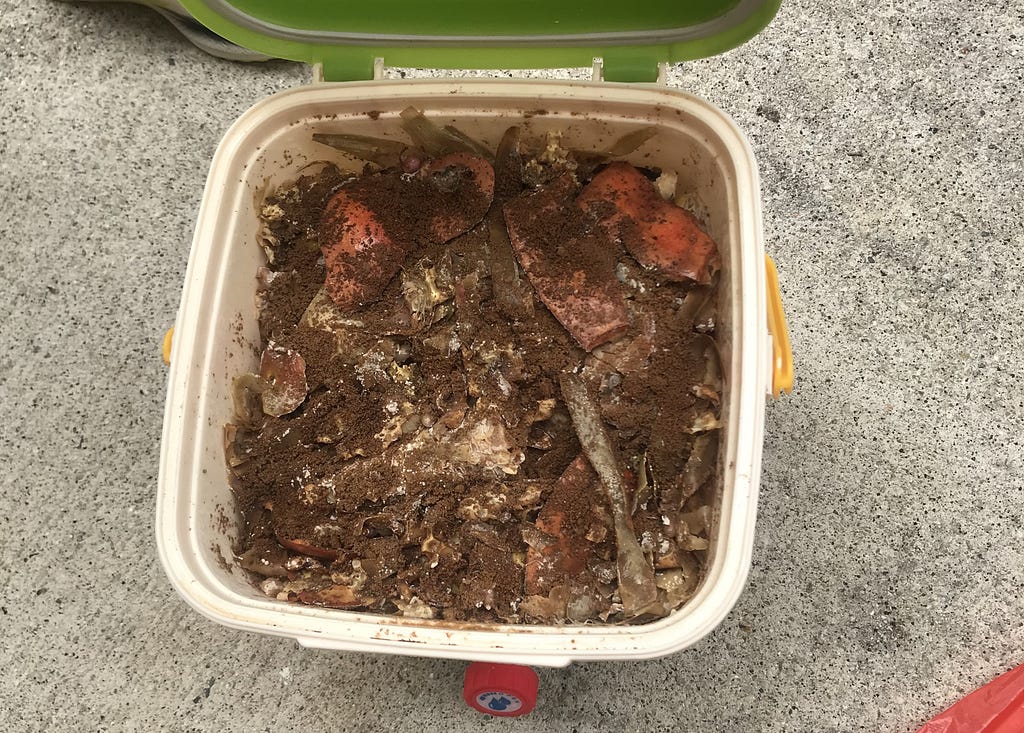
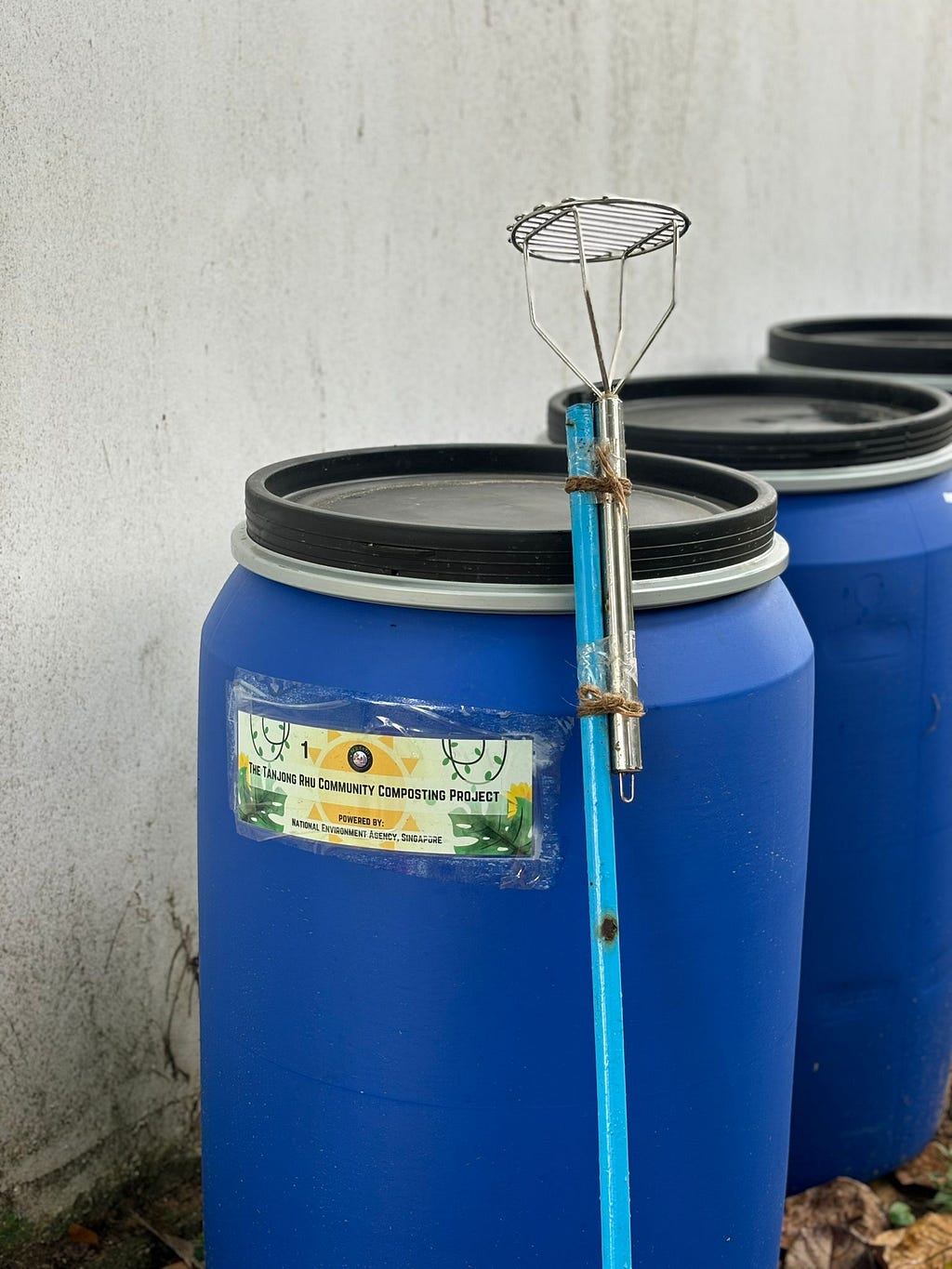
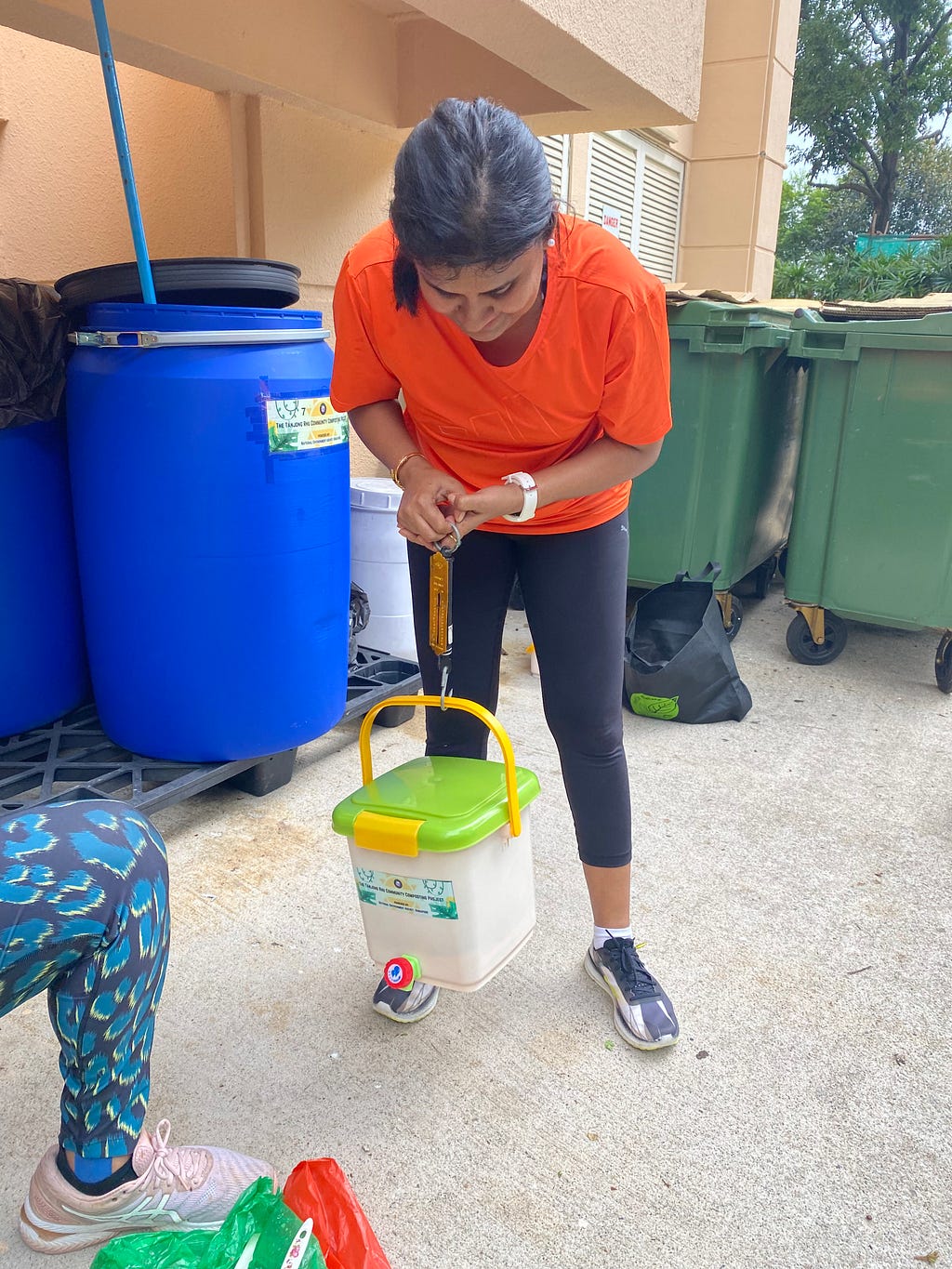
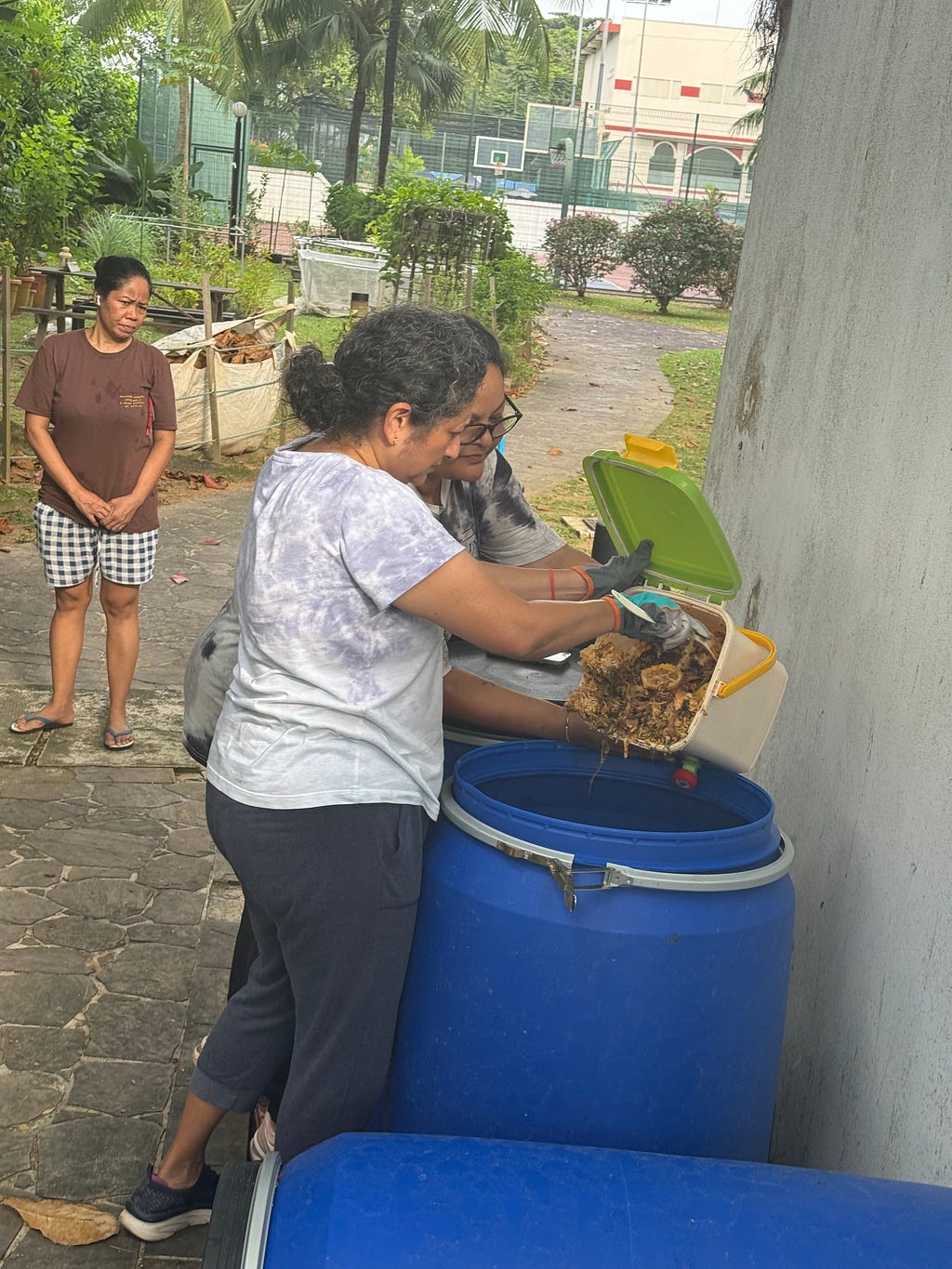
Having no idea about the topic, I was keen to explore the concept and take the first step to understanding sustainability. Originating in Japan, Bokashi Composting is less widely known compared to traditional composting methods. The word “Bokashi” means “fermented organic matter” in Japanese, throwing light on the process where food scraps are fermented rather than decomposed typically. Unlike regular composting, which requires air and turning, Bokashi composting works anaerobically and can handle a wider range of food waste, including meat and dairy.
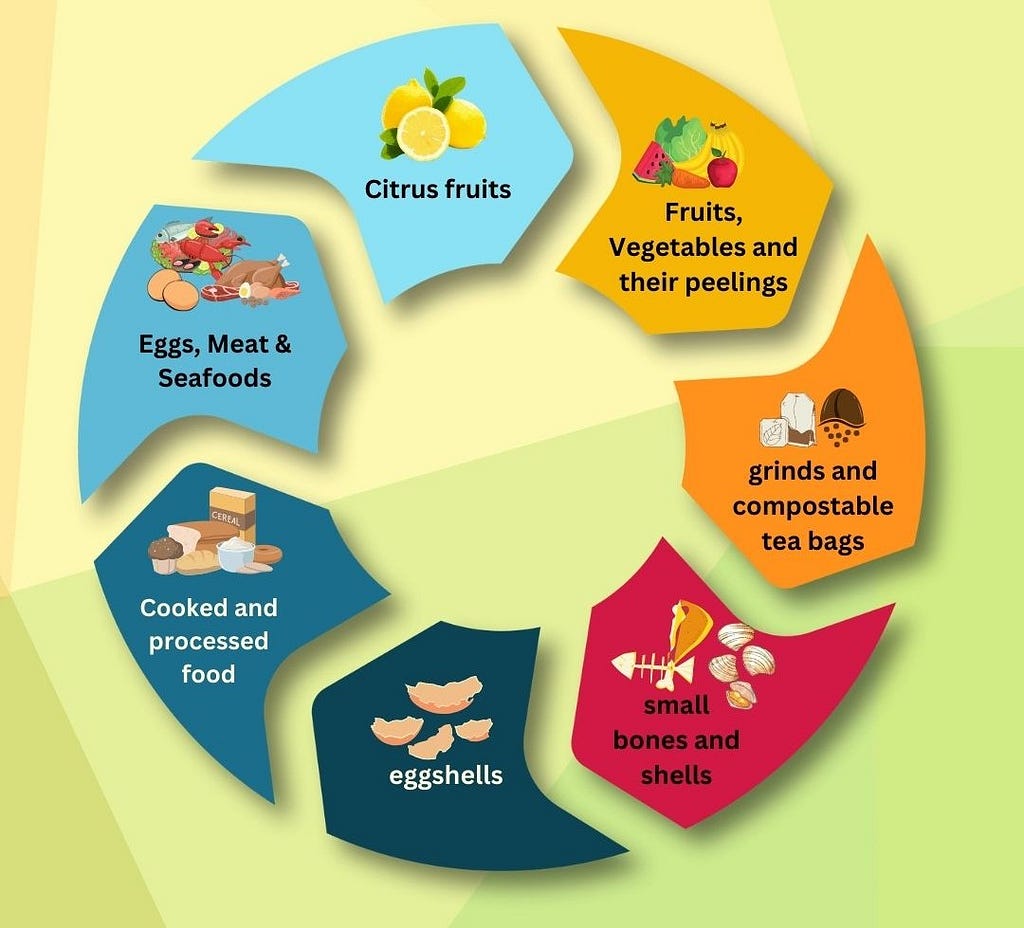
Over the years, Bokashi composting has spread beyond Japan and gained popularity in other parts of the world. It’s known for being a quick, odour-free, and space-efficient way to recycle food waste into valuable soil compost. The waste is layered into a specially designed Bokashi bucket, which is airtight to create the necessary anaerobic environment. After each layer of food waste is added, it’s sprinkled with Bokashi bran, which is a mix of bran incorporated with beneficial microorganisms that ferment the waste. Once the bucket is full, it is sealed and left to ferment for about two weeks. During this time, the microorganisms break down the waste, transforming it into a pre-compost material. After the fermentation period, the contents of the Bokashi bucket are ready to be buried in soil, where they decompose further and enrich the earth, completing the composting process.
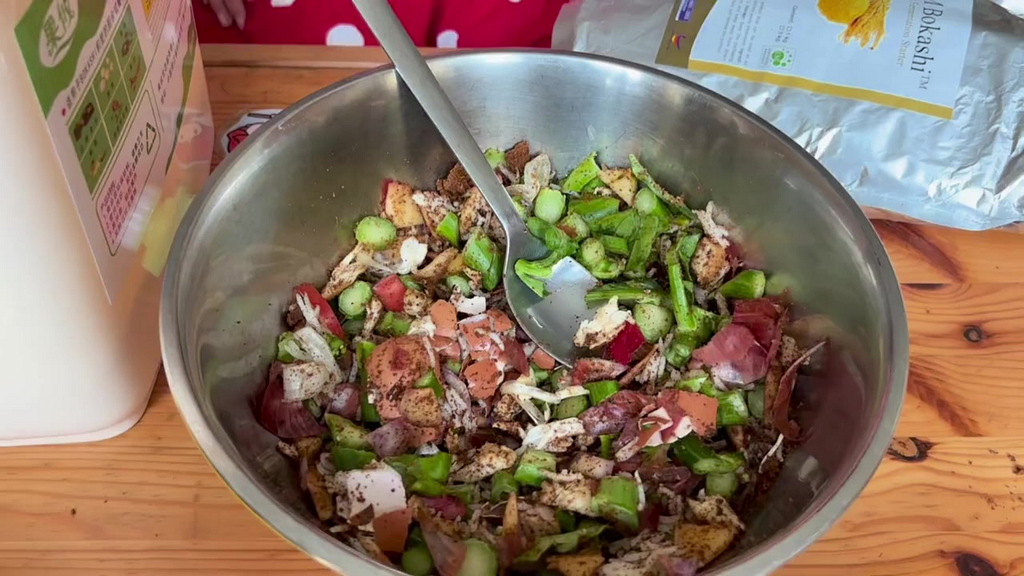
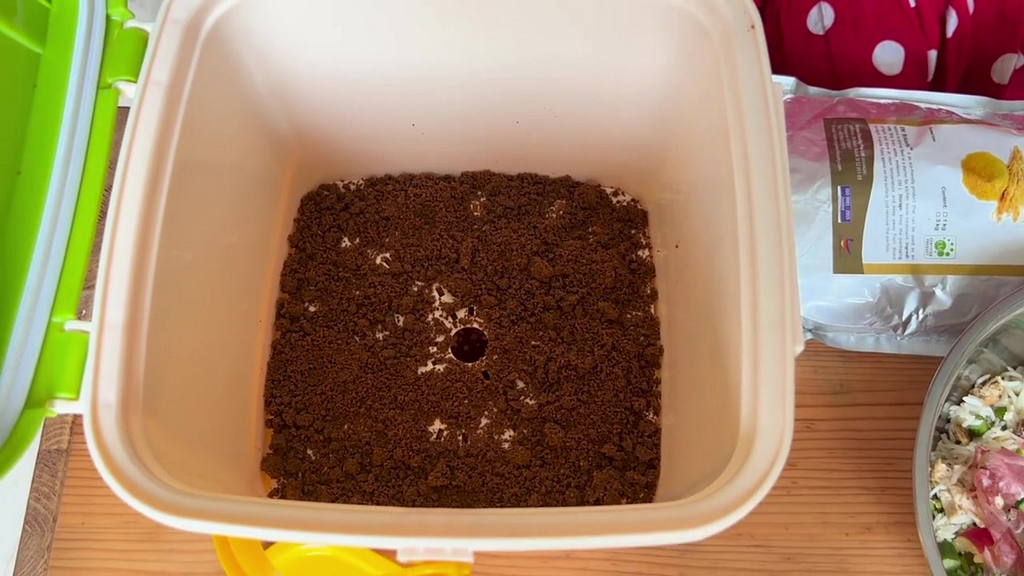
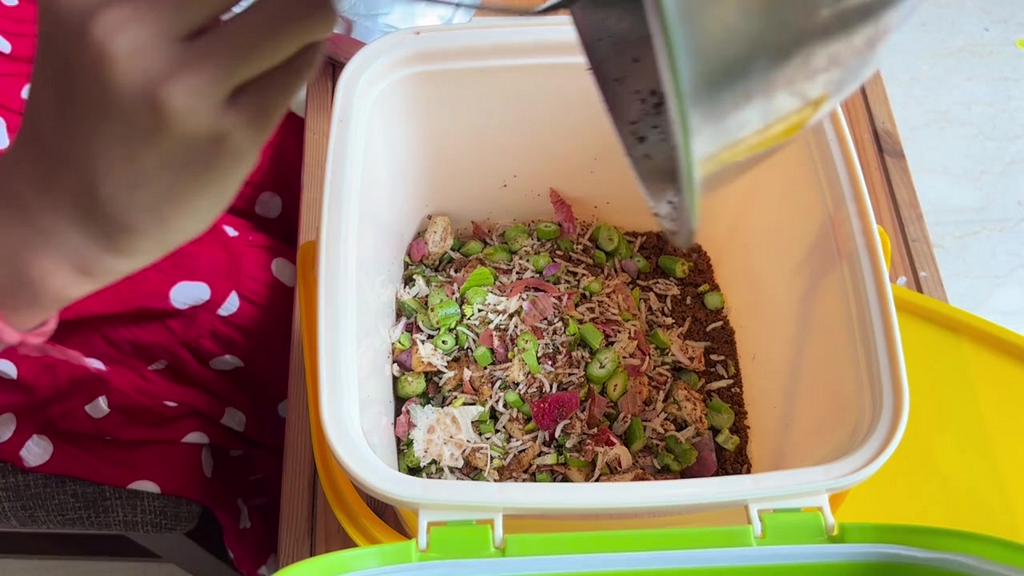
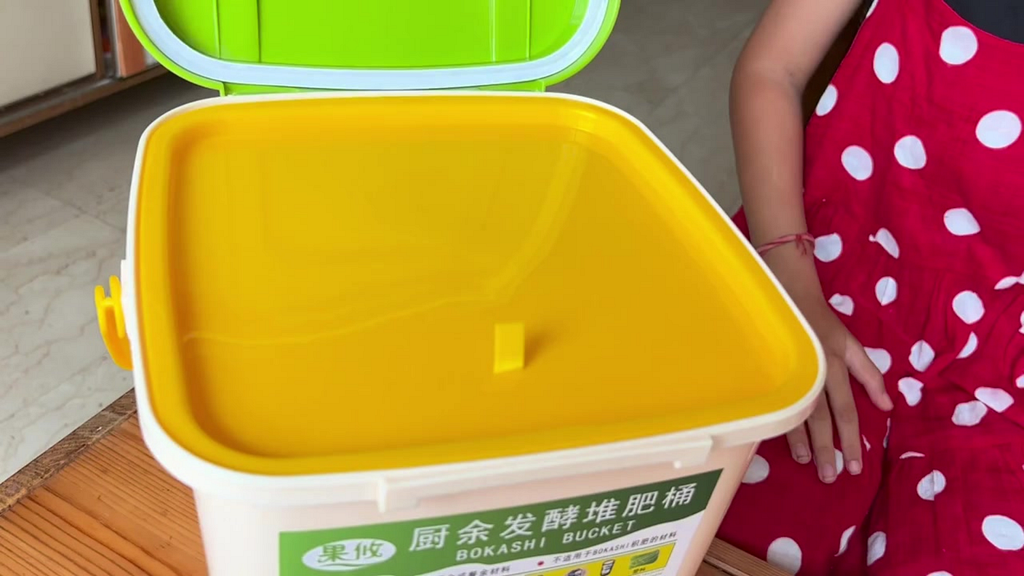
Compared to other types of composting methods such as vermicomposting or aerobic composting, which usually produce compost in a span of 2–3 months, Bokashi composting is a rapid process, typically completing in about four to six weeks, and is more versatile in terms to organic waste that can be added to it, including meat and dairy. Introducing Bokashi composting can significantly benefit localities by providing a fast and efficient method to manage kitchen waste. Bokashi composting is easy to implement in neighbourhoods because it doesn’t need much space or special equipment. It can be done in small, sealed containers that fit in kitchens or on balconies, making it ideal for people who live in apartments or small houses.
In my neighbourhood, waste segregation is done to some extent. With the door-to-door collection, organic waste is converted into valuable compost using aerobic composting. Further, the resulting compost is utilised for maintaining the health of various plants and trees inside the apartment complex. However, this process faces various setbacks due to lack of proper management and care, often resulting in a mix-up of organic waste with plastics. Eventually, most of the organic waste ends up in dump yards, killing the opportunity for developing potential compost.
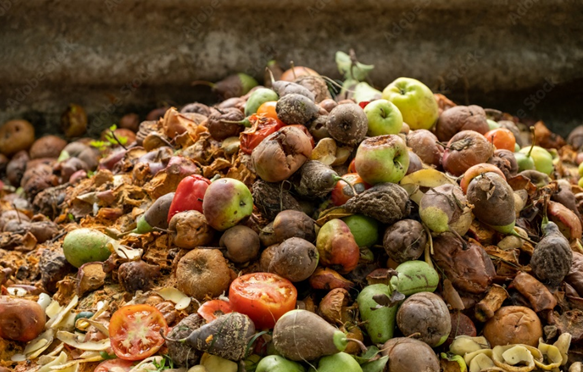
Here, Bokashi composting could be an ideal method to follow. Being a highly contained process, it involves placing organic waste into an airtight container, layering it with Bokashi bran, which contains beneficial microorganisms, and then sealing the container. This setup ensures that only the intended organic waste is processed, reducing the risk of contamination with plastics or other non-compostable items. It also simplifies the process by allowing almost all types of kitchen waste to be included, thus encouraging more consistent participation and reducing the likelihood of improper disposal.
Furthermore, the aerobic composting process currently in use requires regular turning and aeration to ensure proper decomposition, which can be labour-intensive and difficult to manage in a community. If not followed correctly, it can lead to unpleasant odours, slow decomposition, and the attraction of pests, causing withdrawal of residents from actively participating in composting efforts. Bokashi composting, however, requires minimal maintenance. The waste ferments in a sealed container without the need for turning or aeration, and the process is relatively odour-free, producing only a mild, pickled smell. This ease of use makes it much more likely that residents will consistently engage with the composting process, leading to better overall waste management.
My experience with Rejuvrth in Singapore has been eye-opening and inspiring, making me learn the importance of waste management and environmental responsibility. Sustainability often feels like a massive and tedious project, something that requires significant lifestyle changes or is only achievable on a larger scale. However, learning about Bokashi composting provided an everyday approach that made sustainability feel accessible and easy. The little knowledge and skills I’ve gained during my trip have inspired me to learn more about this practice. Using this knowledge, I hope to be able to drive change and promote sustainability in my neighbourhood. It was a transformative experience that made sustainability more personal and actionable, showing me that even small changes in how we manage waste can have a significant positive impact on the planet. By implementing composting practices and engaging more people, we can work towards a greener and more sustainable future!
(Ananya is a sustainability-conscious teenager sharing her first-hand experience of observing Rejuvrth’s initiative in action.)






